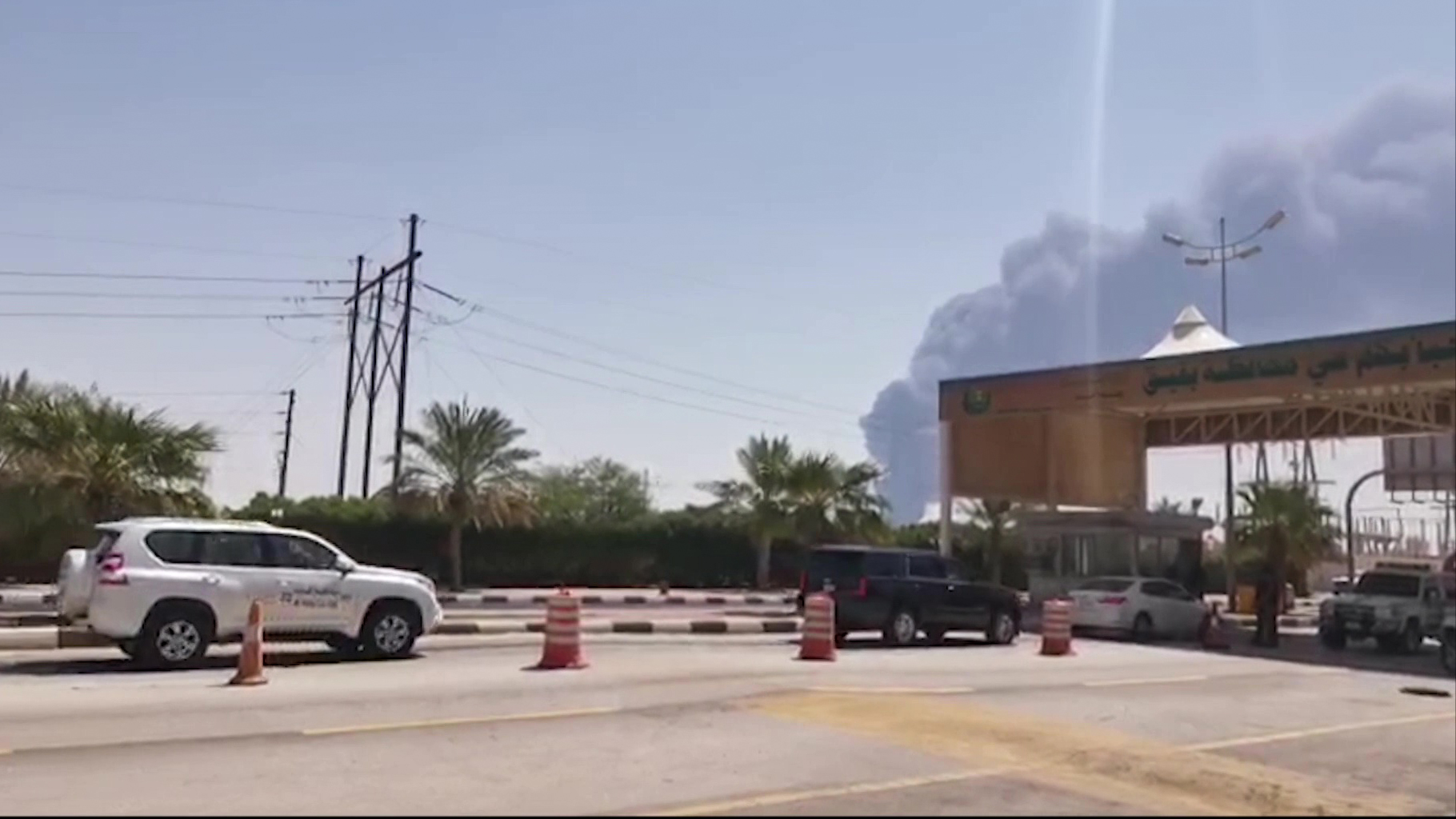Attack halts Nigeria oil production
TEXT OF INTERVIEW
Kai Ryssdal: Royal Dutch Shell has shut down some of its oil production in Nigeria today. Militants have tried once again to destroy one of the company’s pipelines in the Niger river delta. It’s a situation that energy companies in the notoriously-unstable region are all too familiar with. Carola Hoyos is the chief energy correspondent for the Financial Times. Good to have you with us.
Carola Hoyos: Hi.
Ryssdal: Remind us if you would, where Nigeria fits into the global oil market.
HOYOS: Well, it produces more oil, or can produce in theory more oil than any other African nation, that’s very important for the U.S. It exports almost half of it’s oil to the U.S. And it’s a member of OPEC, so it’s a big and important oil supplier.
Ryssdal: And the oil it has is the good stuff, it’s the light, sweet crude you can easily refine, yes?
HOYOS: Gosh, you’re an oil nerd. Yes, that’s right, it does. It produces the good, easy to refine, very valuable light, sweet oil that U.S. refineries like to make into gasoline.
Ryssdal: And once again today, we’ve had reports of rebel activity in the Niger delta where there are a lot of oil platforms. This happens, it seems, every two, three, four days, that there are rebel attacks, that platforms shut down, and there’s a problem with Nigerian exports.
HOYOS: Nigerian is one of the most plagued countries in this regard, and in fact, I said it can produce 2.7 million barrels a day, but in fact, it is only producing 1.8, between 1.8 and 2.1 million barrels a day on a good day. And that just goes to show how much of an impact these attacks have had over the years.
Ryssdal: If this were last year, though, with oil at $150-something, $147, I bet the news would have been much more roughly taken by the markets. It seems now with lots of supply out there, it’s not that big of a deal.
HOYOS: That’s right. That’s exactly right. And in fact, there were attacks in the summer of last year when oil prices were $147 a barrel. And the market would move, $1, $2, $3 a barrel on news of oil being shut in in Nigeria. Today’s move was much smaller than that, I think we had a kinda of 50 cents, something like that move. It just shows how much sloppier the markets are right now and how much more comfortable we feel in terms of supply being able to come on in other places to substitute for the Nigerian crude.
Ryssdal: Put it in the context, would you, of the American market. How important is it to the American oil industry?
HOYOS: Well, it’s important, but no single country, other than perhaps Saudi Arabia, which just produces such a huge amount of crude oil has that strong of an impact, as long as there’s other supply around. Just because you can just call up your broker and say, right, we can’t get this Nigerian crude, can you find it for me elsewhere. And at the moment that’s not too hard to do.
Ryssdal: On the theory, though, that oil supplies will eventually get tight, any prospect of this unrest in the Niger delta being resolved?
HOYOS: Well, I think the tighter things get, the more dangerous things get in Nigerian, the more of a voice the Nigerian rebels have. And you know, Nigeria really is the cautionary tale. You have dire consequences when you have a very, very poor country producing a lot of oil, and a lot of wealth, and that wealth is mismanaged.
Ryssdal: Have there been any indications from Western oil companies, either European or American, that they’re going to stop trying to produce out of Nigeria?
HOYOS: No, we got close to trying to find that out, well, we did try to find that out last year. And they do seem to be in a complete Catch 22 there. But at the moment, I’ve never heard anyone say that we’ll stop. The companies most affected are Shell, Chevron, Exxon, Total, and any, none of those have said they’ll stop.
Ryssdal: Carola Hoyos is the chief energy correspondent for the FT in London. Thanks so much.
HOYOS: Thank you.
There’s a lot happening in the world. Through it all, Marketplace is here for you.
You rely on Marketplace to break down the world’s events and tell you how it affects you in a fact-based, approachable way. We rely on your financial support to keep making that possible.
Your donation today powers the independent journalism that you rely on. For just $5/month, you can help sustain Marketplace so we can keep reporting on the things that matter to you.


















